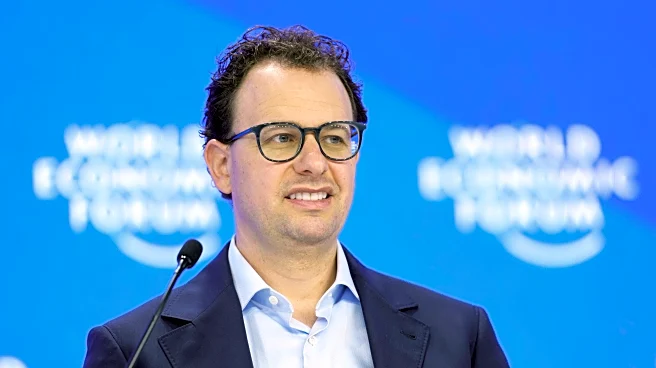What's Happening?
Lufthansa Cargo has entered into an agreement with ultra-fast fashion brand Shein to use sustainable aviation fuel (SAF) for international deliveries. This move is part of a memorandum of understanding signed on August 19, 2025, which aims to define and implement concrete actions within six months. The agreement includes the supply of SAF, certified by 'Proof of Sustainability,' and aims to enhance the traceability of operational and environmental data. However, the agreement has faced criticism from the Fédération Française du Prêt à Porter Féminin (FFPAPF), which accuses the companies of greenwashing.
Why It's Important?
The agreement highlights the tension between economic interests and environmental responsibilities in the fashion and logistics industries. While the use of SAF represents a step towards reducing carbon emissions, critics argue that it may not significantly offset the environmental impact of transporting fast fashion items. The criticism from FFPAPF underscores the ongoing debate about the authenticity of corporate sustainability efforts, particularly in industries known for high environmental footprints. This development could influence public perception and regulatory approaches to sustainability in the fashion and logistics sectors.
What's Next?
The implementation of the agreement will be closely watched by industry stakeholders and environmental groups. The German government's action plan to regulate online commerce may also impact the partnership's future. As the debate over greenwashing continues, companies may face increased pressure to demonstrate genuine sustainability efforts. The outcome of this agreement could set a precedent for similar partnerships in the future, potentially influencing industry standards and consumer expectations.
Beyond the Headlines
The agreement raises ethical questions about the balance between economic growth and environmental responsibility. It also highlights the challenges of achieving genuine sustainability in industries reliant on high-volume, low-cost production and distribution models. The criticism of greenwashing reflects broader societal concerns about corporate accountability and the need for transparent, impactful environmental actions.










